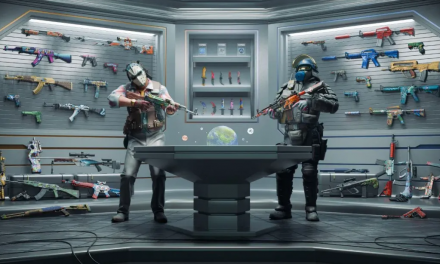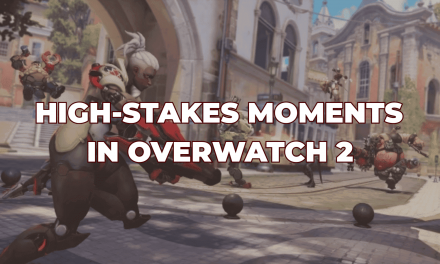Pexels.com
That feeling when the screen lights up and a reward in a video game drops – it’s hard to beat. Maybe it’s a rare item, maybe it’s a level cleared by the skin of your teeth, but it lands just right. It doesn’t happen by chance. Every bit of that thrill is the result of smart design choices made behind the scenes.
Game developers have spent years figuring out what makes a win feel good, and how to keep players chasing the next one. It’s part science, part psychology, and a lot of data. And the really interesting part? These same mechanics show up in more places than you’d expect; sometimes where you least notice them.
The Psychology of Rewards: What Really Keeps Us Playing
There’s something unmistakably satisfying about unlocking a new video game achievement, especially when it comes after a stretch of trial and error. That sense of I earned this doesn’t happen by accident – it’s carefully engineered. Game designers have spent years learning how our brains react to success, and the findings are surprisingly consistent.
When we complete a task, especially one with a bit of challenge, our brain releases dopamine. It’s the same chemical hit you might get from ticking off a big to-do list item or finding an unexpected €20 in an old coat pocket!
Most reward systems in games are built around this loop: action, result, satisfaction. But the secret sauce is how those actions are structured. Developers borrow from psychology, specifically, a method called operant conditioning. You do something, the game reacts.
Beat a tough level? Here’s a shiny new weapon. Explore an unknown cave? Surprise loot chest. Over time, this back-and-forth creates a rhythm that’s hard to walk away from. It’s a delicate balancing act: give too much, and players stop caring; give too little, and they check out.
Leaks, Loot, and Luck: What Sweepstakes Casinos Can Learn from Game Drops
Game rewards have a way of slipping into places far beyond console screens and fantasy quests. The mechanics that fuel excitement in video games (those moments of anticipation, that rush of surprise) are now being explored in the fast-growing world of sweepstakes casinos. These sites function as online hubs where people come to play and get access to free sweeps coins, gold coins, cash, and giveaways – all without a direct purchase. (Source: sweepscash.com/deals/)
Unpredictability is what keeps people engaged. In video games, a rare item can drop at any moment, and that element of surprise is what makes the reward feel exciting. Sweepstakes casinos can apply the same logic – adding random bonuses, time-limited events, or layered progression systems to keep users active. When players receive unexpected rewards, even small ones, it triggers the same satisfaction loop that games rely on.
Many sweepstakes platforms already use two types of currency, with one for gameplay and the other linked to potential prizes. This mirrors how games separate resources for strategy and progression.
But where games excel is in how they pace and frame these rewards. Sweepstakes casinos that structure their bonuses with similar timing and anticipation – rather than handing everything out upfront – stand a better chance of keeping players engaged over the long term. The model works, and gaming has already proven it.
The Math of Motivation: How Odds Influence the Way We Play
Every in-game reward has a number behind it. Not random in the loose sense, but calculated to push a certain feeling, just enough hope to keep a player going, just enough success to feel like progress. Developers don’t rely on guesswork. They use tailored probabilities, often backed by data, to decide how and when rewards appear.
At the center of it all are random number generators, or RNGs. These are engines designed to create moments of tension, surprise, and near-success. That sense of being close, of nearly nailing it, keeps players coming back.
What makes this system especially effective is how closely it’s monitored. Developers constantly analyze where people pause, quit, or spike in engagement. If too many players drop off before reaching a key milestone, the reward pacing gets tweaked. Maybe a better item drops a little earlier. Maybe a boss becomes slightly easier. The math evolves with the audience.
Why Uncertainty Works: The Pull of Variable Rewards
Modern gaming doesn’t rely on skill. It relies on timing you can’t predict. You don’t know when the win will come, and that’s exactly why you stick around.
You’ll see this in action with loot drops, where a rare item might fall after 40 battles… or on the very first one. It’s also embedded in progression systems, where hitting the next level, unlocking a new ability, or triggering a bonus can happen in waves, not straight lines. These moments create tension and curiosity, two emotions that work better than routine when it comes to long-term engagement.
Done well, variable rewards mimic the psychology behind real-life challenges. You keep applying effort because the next breakthrough might be right around the corner.







![[Rumor] Chrono Trigger remake or remaster could already be in development](https://vgleaks.com/wp-content/uploads/2026/02/chrono-trigger-150x150.jpg)


![[Rumor] The Game Awards 2026: GTA 6 Might Not Make It In Time](https://vgleaks.com/wp-content/uploads/2026/02/GTA6-awards-150x150.jpg)

